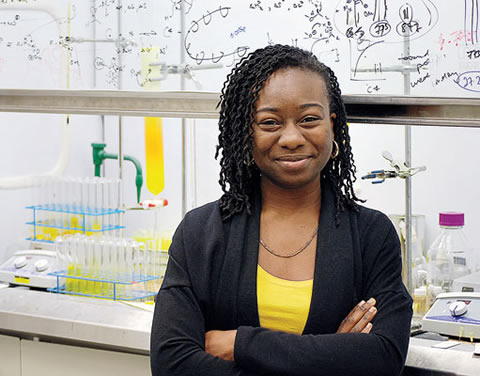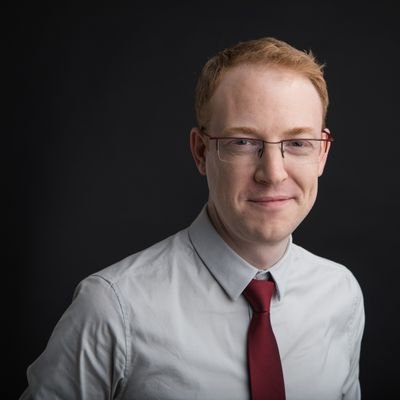“I always liked puzzles, and building things,” says Eugenia Duodu, a second-year PhD student in medicinal chemistry at the University of Toronto at Mississauga. These days, she combines both skills – at the molecular level – to better understand how cancer spreads.
Cells are constantly buzzing with activity, Duodu explains, with proteins and other chemicals colliding and reacting. In cancer cells, that process runs wildly out of control, which is what produces tumours. Duodu’s research is about designing molecules that act like a nano-scale monkey wrench thrown into the gears of a cancerous cell. Jam that cellular machinery, and the cell can’t divide, slowing the advance of the tumour. Research like Duodu’s could one day lead to drugs that, unlike chemotherapy or radiation, are capable of targeting cancerous cells while leaving healthy ones alone. That means more effective treatment – with fewer dangerous side-effects.
It’s that research, as well as her involvement in Visions of Science – a community science literacy project – that recently prompted the Black Business and Professional Association to award Duodu the Harry Jerome CIBC Academics Award.
At Visions of Science, university students hold free science clubs for children in low-income communities. Each Saturday, Duodu leads a workshop or experiment – ranging from a “creepy-crawly” session about insect biology, to engineering a miniature balloon-powered car. “I think the way you learn science is by seeing it, doing it and getting your hands dirty,” she says. “If you don’t do that, you can’t learn properly.” Duodu delivers the message that a career in science is possible for young people who don’t hear that a lot. “We’re trying to give the kids an opportunity to even think of science as an option.”
Duodu knows first-hand the difference that even a small push can make. She grew up in a Toronto Community Housing complex in Etobicoke (where she still lives), and found that, even as a bright and hard-working student, some learning opportunities hovered frustratingly just out of reach. “There were clubs and some online programs I wanted to join, but they cost, say, $350 for a week, and I couldn’t afford that.”
A turning point came when she joined the U of T Faculty of Medicine’s summer mentorship program, an intensive four-week introduction to health sciences. “I remember I was in a research lab rotation for one day, and I was like, ‘this is really cool,’” says Duodu.
Opportunities like that are key, she says, as is improving general science education in earlier grades. “The science curriculum will be beefed up,” she says, adding with mock seriousness, “If I have anything to do with it.”






